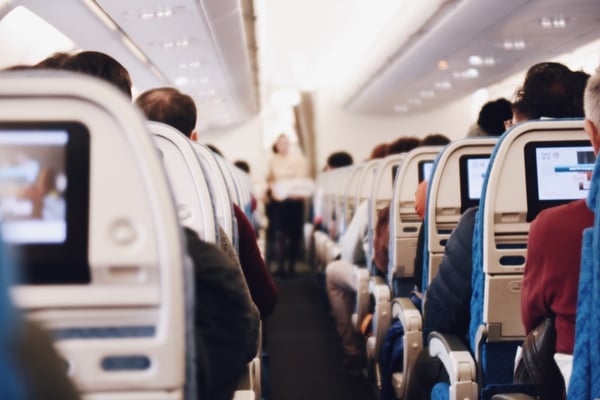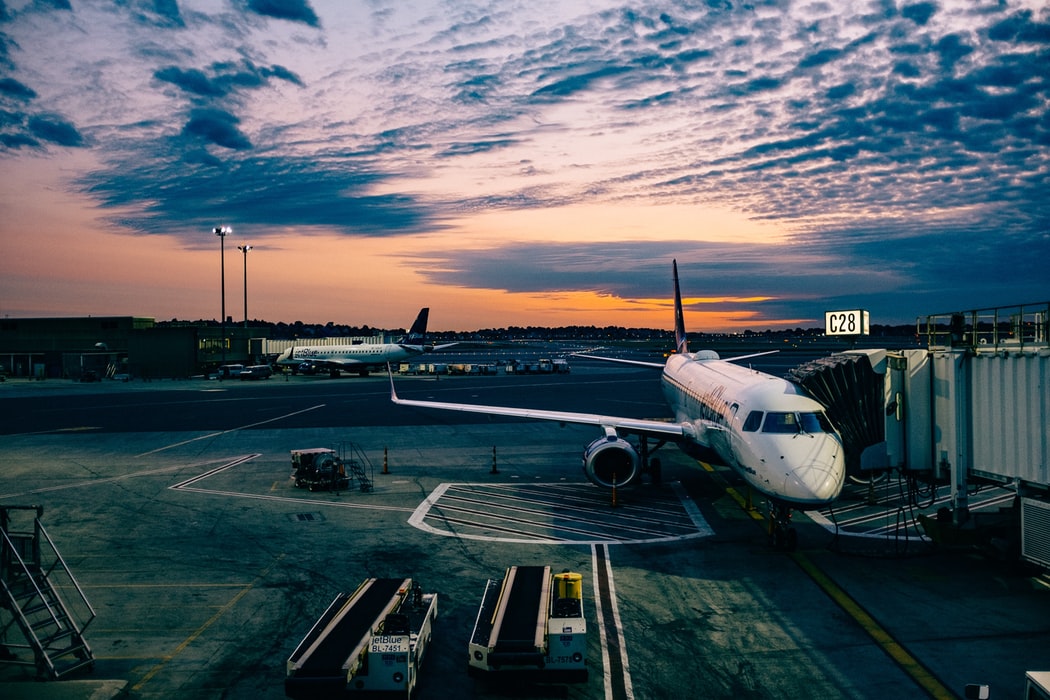
Travel rules by country:
🇬🇧 🇮🇪 🇦🇹 🇨🇿 🇫🇷 🇩🇪 🇮🇹 🇵🇹 🇪🇸 🇺🇸
Imposing various travel restrictions has become a widespread measure for governments to contain the expansion of the Covid-19 outbreak, recently labelled as a pandemic by the World Health Organisation (WHO). The travel landscape has been widely affected with citizens being instructed against all non-essential travel for a period of 30 days. So far, both leisure and corporate travel industries are suffering from an increased number of cancellations and almost non-existent demand. How is the future of corporate travel going to look like for the next weeks and months to come?
While short-term demand for business travel has been severely affected, travel managers and relocation companies keep receiving business-focused midterm bookings (between 30 up to a year) including in Paris, Milan, London or Dublin. From an immediate requirement perspective, this might be caused by an increased demand for emergency accommodation, homes for self-quarantine or self-isolation or last-minute relocation.
This is particularly applicable for business travellers or foreigners who are already within the given country. Governments are increasingly prohibiting accommodation establishments to provide short-term accommodation services to tourists, including in Paris, Prague or Barcelona among others.
In the near future, we see demand for midterm business accommodation and relocation could start to gradually increase, as business-travel could be included within the essential travel set by various government policies. Corporate travellers travelling for project assignments, relocation and meetings could obtain specific permissions to travel abroad.
This article will be updated regularly with government policies and procedures related to travel restrictions or travel bans as circumstances evolve.
To help our customers and all travellers, we have been closely monitoring travel regulation and border control check information in Europe. Below, we are sharing a list of countries with travel restrictions in place:
Travel restrictions by country
United Kingdom 🇬🇧
Last updated on 24th March
The Foreign Office (FCO) advised British nationals against all but essential international travel. Any country or area may restrict travel without notice.
Source: https://www.gov.uk/government/news/covid-19-essential-travel-guidance
Ireland 🇮🇪
Last updated on 24th March
Travellers can still travel to Ireland, but a self-quarantine for 14 days is mandatory upon arrival. The country has adopted several restrictions related to public life with the prohibition of cultural and sporting activities, restrictions of large gatherings as well as closure of shops, restaurants and bars. Health screenings on arrival is very likely.
Source: https://www.dfa.ie/travel/travel-advice/
Austria 🇦🇹
Last updated on 24th March
Below are several countries which have been restricted to travel to Austria.
Entry ban to Austria for persons from Italy, Switzerland and the Principality of Liechtenstein (exception: with medical certificate). Passenger traffic by train and airplane is suspended.
Entry ban to Austria for persons from Great Britain, the Netherlands, Ukraine and Russia.
From March 16, 2020 flight and train connections from Spain and France to Austria will be discontinued.
The borders with Germany, Hungary, the Czech Republic and Slovakia are closed.
The Austrian embassies and consulates have suspended visa operations.
The home carrier Austrian Airlines will temporarily suspend regular flight operations March 19, 2020 (provisionally until March 28, 2020).
Source: https://www.wien.info/en/travel-info/coronavirus-information
Czech Republic 🇨🇿
Last updated on 24th March
A ban on entry to the territory of the Czech Republic for all foreigners except for foreigners with permanent or temporary (over 90 day-long) residency in the Czech Republic from risk countries. The full list of countries can be found here. Exceptions are made if foreigners work in the Czech Republic and are holders of employee cards. All accommodation establishments are generally prohibited from providing accommodation services. However, this prohibition does not apply to accommodating foreigners until they leave the territory of the Czech Republic and foreigners with a work permit in the CzechRepublic. Accommodation establishments can continue to provide accommodation services, but only to these foreigners.
Source: https://www.mvcr.cz/mvcren/article/state-of-emergency.aspx
France 🇫🇷
Last updated on 24th March
The Government of France announced measures to minimise contact and travel. A containment system is currently put into place throughout France starting from March 17 for a minimum of fifteen days. If necessary, travel is permitted in the following cases:
Between home and work when telework is not possible;
To make essential purchases in authorised local shops;
For health reasons;
To care for children or help vulnerable people;
Pet care
If you must travel for one of these reasons, you must carry an attestation (printable version here). The Government of France announced that, as of March 17, European Union external borders will close for 30 days. Travel across the Schengen area’s internal borders is significantly restricted. Health screening on arrival from countries, including China, Hong Kong, Macao, Singapore, South Korea, Iran, and affected regions in Italy.
Source: https://www.gouvernement.fr/en/news
Source 2: https://www.diplomatie.gouv.fr/fr/conseils-aux-voyageurs/
Germany 🇩🇪
Last updated on 24th March
Germany has introduced travel restrictions for entries from outside the Schengen area on March 17, 2020. All corresponding entries from non-EU-citizens and citizens of non-Schengen states by plane or ship are affected. According to guidelines local authorities will require Hotels to provide stays only if strictly necessary and not for touristic purposes.
Italy 🇮🇹
Last updated on 24th March
The government has announced a lockdown on March 10th to contain the spread of the Covid-19 virus. The restrictions are in place until April 3rd . Flights from China and Taiwan were suspended and travellers are subject to health screening. Only Supermarkets, banks, pharmacies, post offices, and other essential services remain open.
Source: https://www.esteri.it/mae/en
Portugal 🇵🇹
Last updated on 24th March
Flights from outside the EU are suspended, with the exception of UK, USA, Canada, Venezuela, South Africa and Portuguese speaking countries. Travellers need to self-quarantine for 14 days for anyone arriving from risk countries / cities, including Azores, Madeira and Porto Santo. Portugal further adopted land border restrictions with Spain, with the exception of cross-border commuters and deliveries only.
Source: https://www.visitportugal.com/en
Spain 🇪🇸
Last updated on 24th March
On 14th March Spain declared a State of Emergency. The Interior Ministry restricted entry for most foreigners at air and sea ports from the 22nd March for a period of 30 days to help stem its coronavirus epidemic. The Spanish government has further ordered that hotels and short-stay accommodation (such as short-stay campsites or caravan parks) must close by midnight 26 March. These measures do not apply to long-term accommodation, such as long-stay campsites, as long as clients can cater for themselves, in their own spaces (ie that clients do not rely on communal facilities).
Source: http://www.exteriores.gob.es/Portal/en/Paginas/inicio.aspx
What about the US? 🇺🇸
Last updated on 24th March
Travellers from China, Iran and certain European countries are banned from entering the United States. This ban includes anyone who visited these countries within the 14 days prior to their U.S. trip. The travel restrictions includes Austria, Belgium, Czech Republic, Denmark, Estonia, Finland, France, Germany, Greece, Hungary, Iceland, Ireland, Italy, Latvia, Liechtenstein, Lithuania, Luxembourg, Malta, Netherlands, Norway, Poland, Portugal, Slovakia, Slovenia, Spain, Sweden, Switzerland and United Kingdom.


9 Ways to Make Business Travel More Sustainable in 2026
Previous Article
AltoVita’s guide to help travellers through the Coronavirus
Next Article


